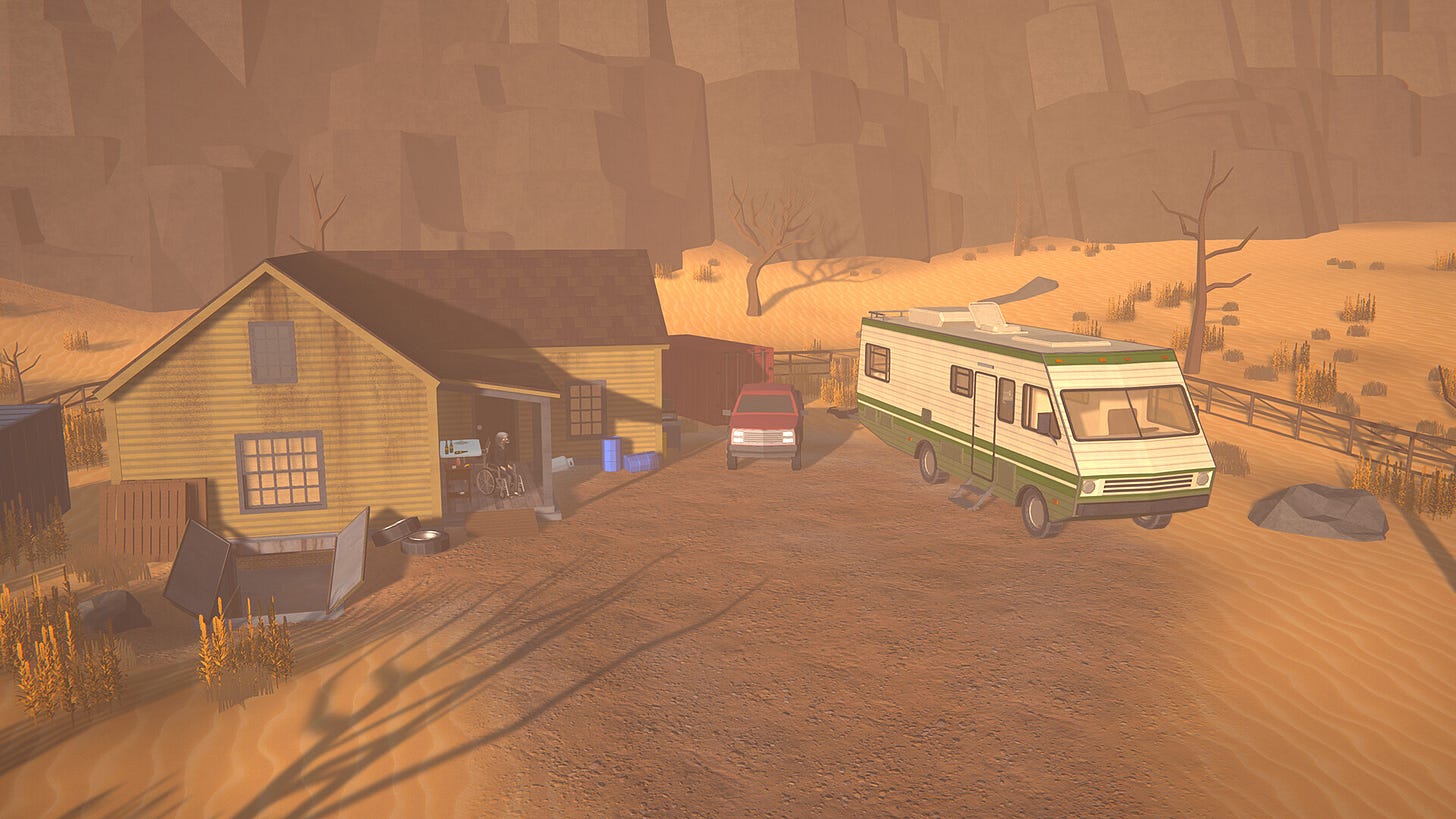The Games Industry is Deprofessionalizing
The fragmentation of a creative form and its institutions
There’s this word I’ve started using to describe what’s happening to the games industry: deprofessionalizing.
It’s not a very nice-looking word. Google Docs is skeptical of it. And saying it out loud feels worse—seven syllables! But despite the word’s aesthetic failings, I can’t get deprofessionalizing out of my head.
The first person to apply the term to the games industry was GameDiscoverCo’s Simon Carless, in an interview he gave last year to Wired. That article was about what went wrong with Sony’s 400-million-dollar-megaflop Concord—but Carless offered a broader view, with an analysis of the negative headwinds facing the games industry:
“For big companies, it's difficult to work out what bets—and how large bets—you should make… Some of the corporate overexuberance during Covid and low interest rates has meant that large companies overextended, and the pullback has been—and is going to be—painful.”
A few paragraphs later in the piece, Carless arrives at this brutal assessment (bolded emphasis mine):
“If you have a stable parent company with a balanced set of single-player and [live-service] releases, you should be in decent shape,” says Carless. But “the middle of the market is disintegrating. The games industry is deprofessionalizing in many ways; games as a stable profession will be tricky for many people in high-GDP countries.”
This diagnosis feels intuitively correct, and the prediction Carless makes is a measurable one: if the games industry is indeed deprofessionalizing, we’d expect to see headcounts at major studios continuing to shrink over the coming years.
We’ve already been watching this process play out for the last two years. The negative impacts of stable games industry jobs going away are so obvious that—for anyone hoping to build a traditional career working in games—one natural response is to shift focus to ways to slow the process or at least mitigate its harms. This is a major driver behind unionization efforts at a growing number of games studios. As the legacy games studio model crumbles under the pressure of soaring costs, the benefits touted by labor organizers for unionizing workers shifts from guarantees of stable work to better pre-negotiated severance packages.
This story is well-covered by others, and the many causes are up for debate. I personally think this whole process is overdetermined and, at this point, unavoidable. But instead of debating solutions, I want to step back and look at the correlates.
What I mean is: What’s actually happening?
A few trends stand out, many of which I’ve written about in the past year:
Old games are killing new games - Particularly for free-to-play live service titles, games released over five years ago are absorbing the vast majority of player attention and playtime. On PC and console in particular, basically no Western game developer has released a hit F2P game since Valorant in 2020.
The world’s biggest games studios now struggle with distribution - Their inability to reliably drive sales means legacy houses can no longer promise stable careers to employees
Indies (at least some) are thriving - Smaller teams are more competitive than ever with the big studios. Some solo developers are even driving $100 million+ in sales in mere months. That is unthinkable in any other entertainment industry.

Each of these trends ultimately drives career professionals from the traditional, professionalized side of the games industry. Some of these people will decide to go indie. Others will leave gaming altogether. And in between there’s a vast spectrum of irregular working arrangements available.
I grabbed lunch this week with my longtime friend Aaron Rutledge, a self-described “greybeard” who has held leading roles on some of the world’s most popular competitive games. Despite locking in big promotions and feeling secure in his job, he recently left one of the biggest studios in the industry to form a one-man agency and become a “gun for hire.” In between contract gigs, he now putters around in a tricked-out sports vehicle, camping out under the stars and plotting his next move with old buddies.
This is the other side of deprofessionalization—the emergence of a more fragmented, creative approach to work and career-design. We’re entering the Choose Your Own Adventure era of the games industry, where the stability of the corporate ladder fades away. But in its place, there’s reason to hope that more flexible arrangements will start to emerge and become viable.
How many people could this be true for? It’s worth asking whether the deprofessionalized alternatives will actually work for more than just a lucky few. I want to remain clear-eyed about this, which is why I intend to keep writing about the deprofessionalization of games in the weeks ahead.
Sure, maybe everything is falling apart. But there’s some light shining through the cracks, if you look for it.






This seems somewhat similar to the Hollywood model. Directors, actors, and technical professionals drift freely between studios, with projects arranged by producers. It's also heavily unionized.
It will be interesting to see how much point 3 ultimately allows for a sustainable "indie industry" rather than a couple of occasional outlier breakouts, with everybody else perhaps not being able to even break even. Making games eventually (perhaps with genAI getting better at replacing existing asset-generating disciplines) goes from a career, to something more akin to one's chances of becoming the next Taylor Swift, with most not being able to even cover their gas bill by playing gigs at local dive bars. Only (maybe "only" is the wrong word here, maybe that's actually already more than anybody ever expected) four solo devs generated 100M+ USD in sales this last decade, out of how many games released during that time?